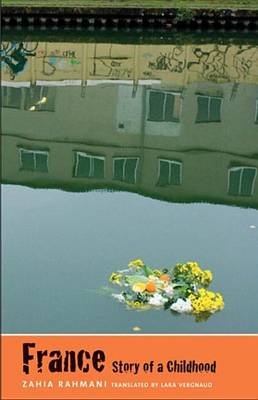World Republic of Letters (Yale)
1 total work
An intimate, heartbreaking autobiographical novel of an Algerian Muslim family's exile from home and unwelcoming reception in France
This moving tale of imprisonment and escape, persecution and loss, is narrated by the daughter of an alleged Harki, an Algerian soldier who fought for the French during the Algerian War for Independence. It was the fate of such men to be twice exiled, first in their homeland after the war, and later in France, where fleeing Harki families sought refuge but instead faced contempt, discrimination, and exclusion. Zahia Rahmani blends reality and imagination in her writing, offering a fictionalized version of her own family's struggle. Lara Vergnaud's beautiful translation from the French perfectly captures the voices and emotions of Rahmani's childhood in a foreign land.
While the author delves deeply into the past, she also indicts present-day France and Algeria. From the unique perspective of the daughter of an accused Harki, she examines France's complex and controversial history with its former colony and offers new insight into the French civil riots of 2005. She makes a stirring plea for understanding between generations and cultures, and especially for an end to the destructive practice of condemning children for their fathers' actions and beliefs.
This moving tale of imprisonment and escape, persecution and loss, is narrated by the daughter of an alleged Harki, an Algerian soldier who fought for the French during the Algerian War for Independence. It was the fate of such men to be twice exiled, first in their homeland after the war, and later in France, where fleeing Harki families sought refuge but instead faced contempt, discrimination, and exclusion. Zahia Rahmani blends reality and imagination in her writing, offering a fictionalized version of her own family's struggle. Lara Vergnaud's beautiful translation from the French perfectly captures the voices and emotions of Rahmani's childhood in a foreign land.
While the author delves deeply into the past, she also indicts present-day France and Algeria. From the unique perspective of the daughter of an accused Harki, she examines France's complex and controversial history with its former colony and offers new insight into the French civil riots of 2005. She makes a stirring plea for understanding between generations and cultures, and especially for an end to the destructive practice of condemning children for their fathers' actions and beliefs.
